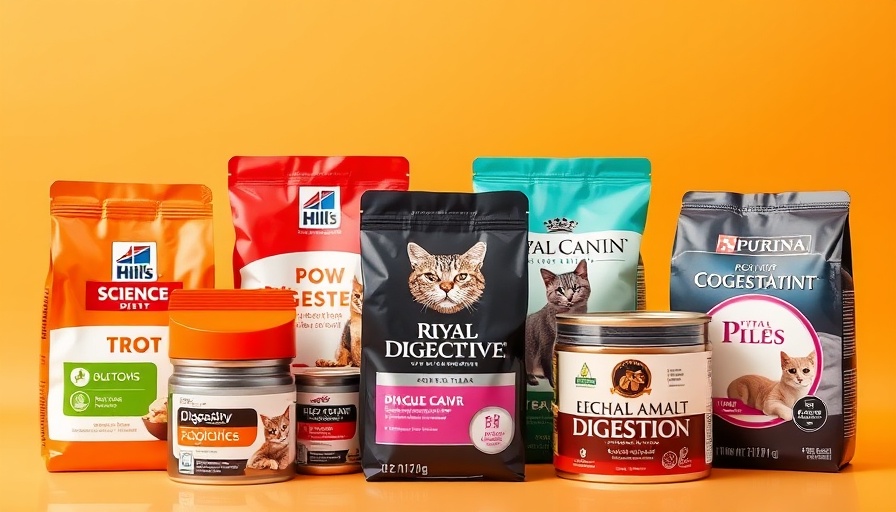
Understanding Sensitive Stomachs in Cats
As a loving pet owner, you want the best for your furry friend. Unfortunately, sensitive stomachs are common among our feline companions, and understanding the causes can be the first step in alleviating their discomfort. Cats can suffer from food intolerances, allergies, or even inflammatory bowel disease, all of which can lead to nausea and digestive upsets. As per veterinary advice, identifying the specific cause of your cat's stomach issues is crucial for selecting the right food.
Recommended Cat Foods for Sensitive Stomachs
When choosing food for a cat with a sensitive stomach, picking options that are easily digestible and nutrient-rich is essential. According to veterinarians, consider options that have low to moderate fat content, quality protein sources, and reduced carbohydrates. Additionally, foods containing probiotics and omega-3 fatty acids can help support gut health.
Among top-rated selections for sensitive stomachs, the Royal Canin Digestive Care Thin Slices in Gravy is praised for its inclusion of insoluble fiber, which aids in preventing constipation and promotes digestive health. For dry food, the Hill's Science Diet Sensitive Stomach and Skin Adult Salmon and Yellow Peas Recipe stands out with its prebiotic fiber that nourishes populations of beneficial gut bacteria.
Age-Appropriate Diets: Catering to All Life Stages
Your cat's nutritional needs change as they age, and offering age-appropriate food can greatly enhance their overall well-being. For adults aged seven and above, the Purina Pro Plan Adult 7+ Prime Plus Ocean Whitefish and Salmon offers specialized nutrients necessary for senior cats experiencing digestive issues. Meanwhile, for kittens, the Royal Canin Kitten Loaf in Sauce provides essential proteins and vitamins vital for growth and development.
Hydration and Wet Food Options
Regular access to fresh water is essential for all cats, especially those prone to digestive issues. Switching to wet food can significantly aid in hydration and digestion for cats with sensitive stomachs. Veterinary recommendations often suggest incorporating wet food as it can be easier on the stomach and provide necessary moisture.
Signs to Watch For
Keeping a close eye on your cat’s behavior is vital in identifying digestive issues. Frequent vomiting, loose stools, or excessive gas are signs that your cat might need a dietary adjustment. Dr. Kelly Diehl, a veterinary internist, emphasizes that if vomiting occurs more than once a week, it is essential to consult your veterinarian to rule out underlying health problems.
Common Misconceptions About Sensitive Stomachs
Many pet owners mistakenly assume that sensitive stomachs are just a 'normal' part of cat ownership. However, understanding that these stomach issues can come from various causes is crucial for better management and treatment. Additionally, not all cats react to the same foods identically—what works for one may not work for another.
Taking Action for Your Feline Friend
Empowering yourself with the right knowledge can lead to healthier dietary choices for your cat. Explore different brands, flavors, and formulations before making a switch. Often, veterinarians can provide tailored dietary recommendations based on your cat's unique needs and health history. Your proactive approach can ensure your beloved pet enjoys happier and healthier days ahead.
Friendly reminder: Regular veterinary check-ups are essential to monitor your cat’s overall health, especially if they exhibit signs of a sensitive stomach.
 Add Row
Add Row  Add
Add 




Write A Comment